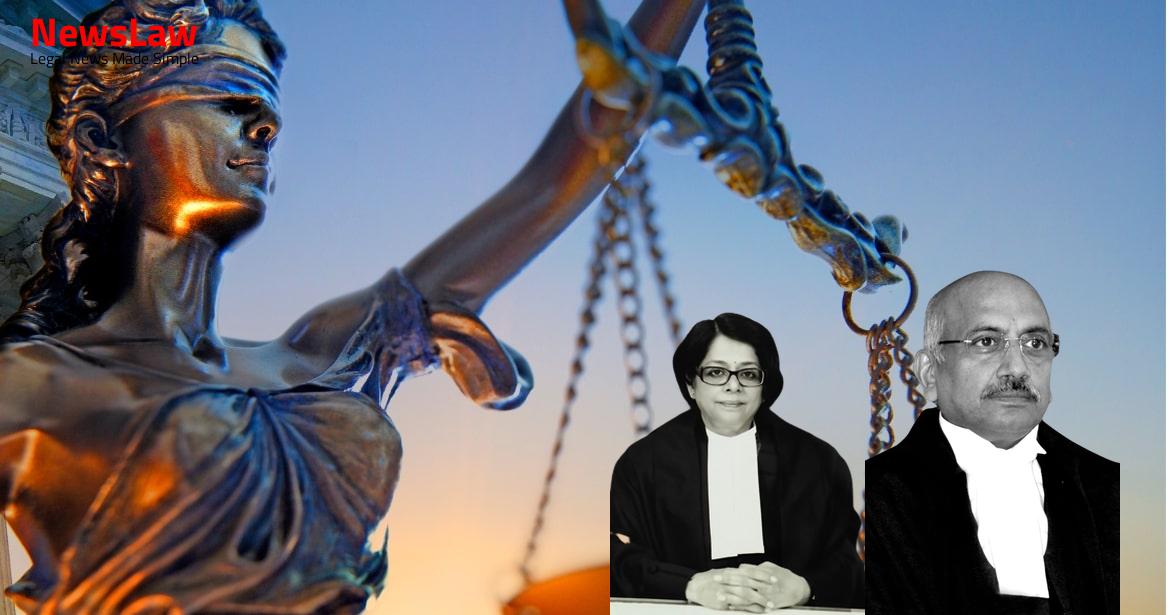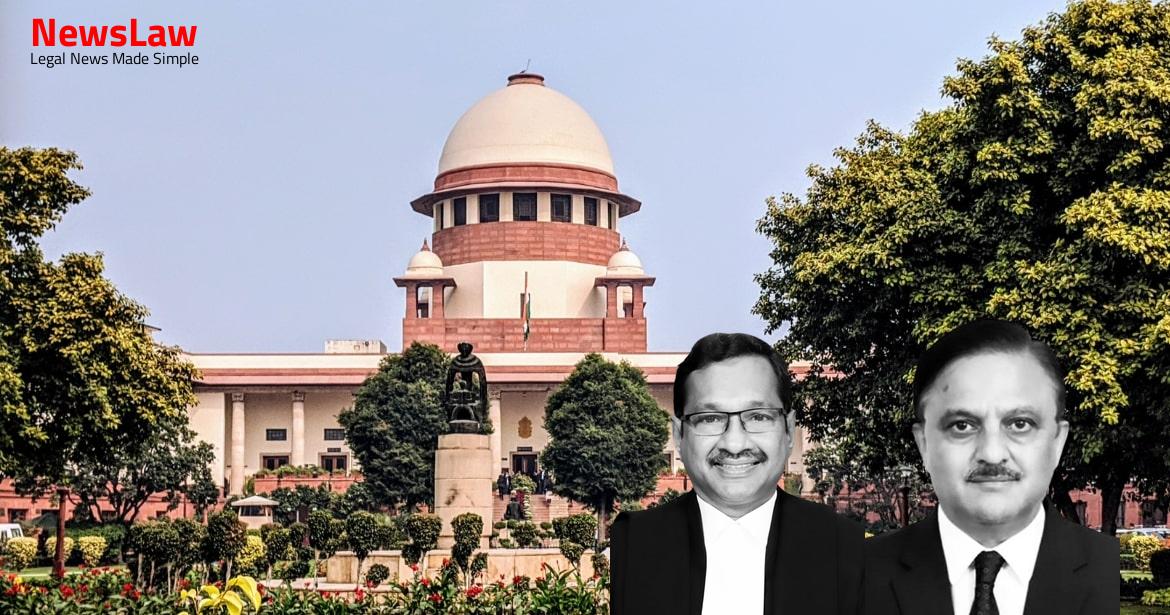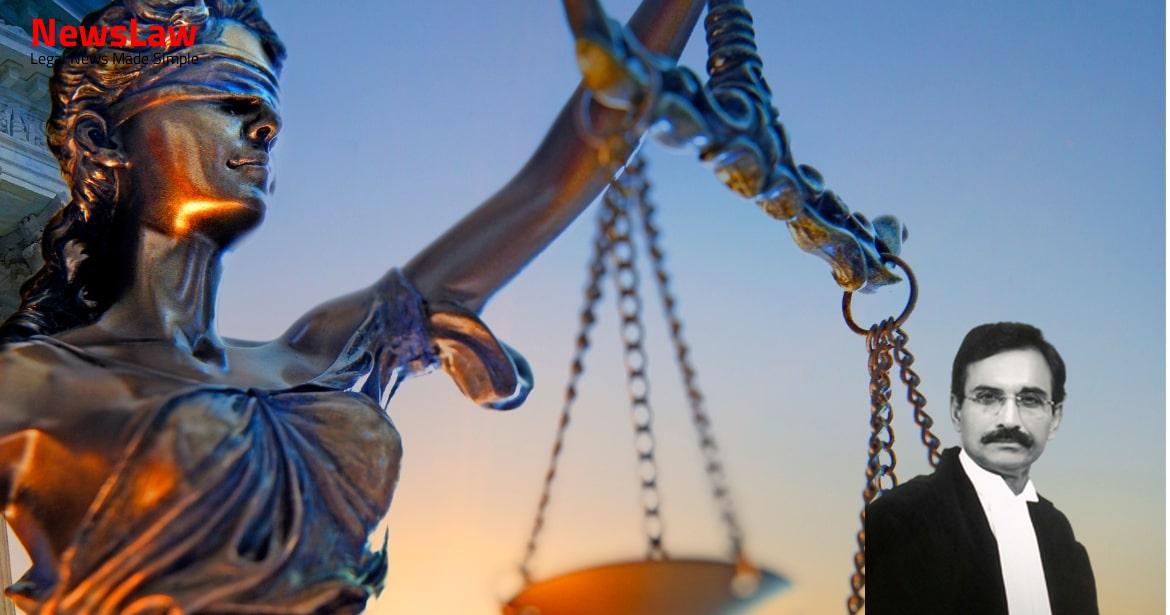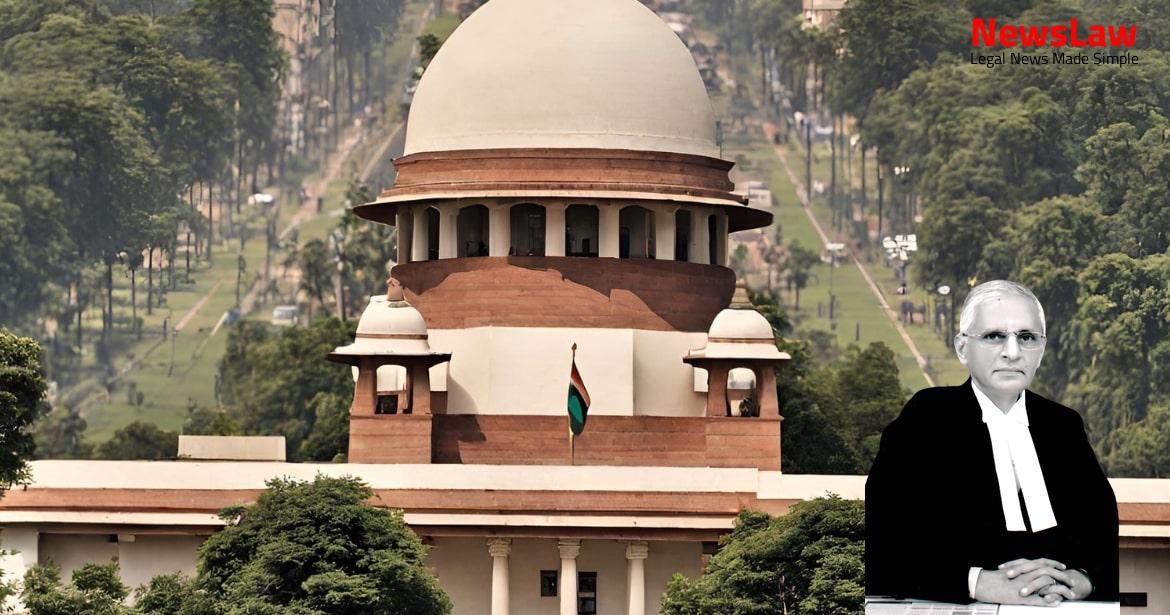The court’s legal analysis in a recent case delves into the significance of timely consideration of detainees’ representations in the context of detention orders. The focus is on the observation of potential injustices caused by delays and the crucial role of expedited decision-making in safeguarding constitutional rights. Let’s explore the key aspects of this case that illuminate the court’s stance on the issue.
Facts
- Detention Orders were passed on 01.07.2019 against Shri Ashok Kumar Jalan and Shri Amit Jalan for smuggling activities.
- Detenues were served with the orders and grounds on 02.07.2019.
- Representations were made by the Advocate on 18.12.2019, and a report by the Central Advisory Board on 06.01.2020 confirmed the detention.
- Petition under Article 32 of the Constitution was filed to quash the Detention Orders on 01.07.2019.
- Delayed consideration of representation was challenged in the writ petition filed on 16 December 2019.
- Central Advisory Board meeting scheduled on 02.08.2019.
- Detention Orders confirmed by the Central Government on 14.01.2020 after rejecting representations on the same date.
- Detenues were directed to be taken into custody on 27.11.2019 following the High Court decision set aside by the Supreme Court.
- Case referred to the Central Advisory Board on 05.12.2019 as per the judgment in Golam Biswas v. Union of India.
- Communication received by the Joint Secretary (COFEPOSA) on the same date.
- Writ Petition No.1840 of 2019 allowed by the High Court on 02.08.2019
- High Court quashed the Detention Orders and directed release of detenues
- Central Advisory Board noted quashing of Detention Orders on 02.08.2019
- High Court decision challenged in Criminal Appeal No.1746 of 2019
- Supreme Court set aside the view taken by the High Court on 22.11.2019
Also Read: Legal Analysis on Arbitration Petition Limitation Period
Issue
- Detaining Authority deferred consideration of representation until receipt of opinion of Central Advisory Board
- Question arises whether Detaining Authority should have considered representation independently
- Investigation needed to determine if delay from 27.11.2019 to 14.01.2020 violated constitutional rights of detenues
- Analysis to be conducted from perspective of representation to Detaining Authority, a specially empowered officer
Also Read: Analysis of High Courts’ Jurisdiction and Court Orders Under Article 142
Arguments
- The Additional Solicitor General for the respondents cited cases like Golam Biswas and K.M. Abdulla Kunhi to argue that representations could only be considered after the report of the Central Advisory Board was received.
- The Detaining Authority received the detainees in custody on 27.11.2019 and the matter was referred to the Central Advisory Board on 05.12.2019.
- It was decided that representations would be considered only after the opinion of the Central Advisory Board was received, which was submitted on 06.01.2020.
Also Read: Electoral Malpractices in Mayor Election
Analysis
- Section 8 of the Act and Article 22(5) require the Detaining Authority to consider the representation of the detenu independently and without waiting for the report of the Central Advisory Board.
- The Detaining Authority, if specially empowered, continues to be the detaining authority even after passing the order of detention.
- Section 11 of the Act allows State or Central Governments to revoke or modify a detention order without affecting the authority who made the order.
- The representation of the detenu must be considered by the appropriate authority as early as possible before confirming the detention order.
- If representation is received after the decision of the Advisory Board, there is no requirement to send the representation to the Advisory Board, but it must be considered by the Detaining Authority.
- The statutory provisions ensure that the Detaining Authority is responsible for considering the representation and making decisions on detention orders.
- The Detaining Authority must act independently in considering the representation, uninfluenced by the opinion of the Advisory Board.
- Legal intricacies and factual ramifications may necessitate some leeway in the time taken to consider a representation, but unnecessary delay is not justified.
- Confirmation of detention order is not conclusive, as the Detaining Authority has the power to revoke the order after considering the representation.
- The Detaining Authority’s obligation to consider and act on the representation is a constitutional right of the detenu and must be fulfilled promptly.
- The Detaining Authority should defer consideration of the representation until the report is received from the Advisory Board in certain circumstances.
- The Detaining Authority has an obligation to consider the detenu’s representation as early as possible and make a decision whether the detention order is in conformity with the law.
- The appropriate Government is bound to consider the detenu’s representation expeditiously, as it is a constitutional right of the detenu to have their representation considered promptly.
- The Detaining Authority’s consideration of the detenu’s representation must be entirely independent of the Advisory Board’s actions or report, with expedition being crucial at every stage.
- The Detaining Authority must provide the detenu with an early opportunity to make a representation and consider it promptly, ensuring the detenu’s constitutional rights.
- Article 22(5) imposes a dual obligation on the authority making the order of preventive detention to communicate the grounds to the detenu promptly and allow the detenu the earliest opportunity to make a representation against the detention order.
- The Act obligates the detaining authority to inform the detenu about the threefold opportunity to make representations.
- There is no difference in the treatment of detention orders made by government officers and those made by the government itself.
- Detention orders made by specially empowered officers of the State or Central Government require approval and cannot be deemed approved.
- Detenus have the right to make representations to the detaining authority, State Government, and Central Government.
- The provisions of Article 22(5) grant detenus the right to make representations, and the authorities must consider these representations.
- The power to revoke detention orders lies with the State and Central Governments, irrespective of which authority made the order.
- The Act does not require the immediate forwarding of grounds for orders made by specially empowered officers to the government.
- Advisory Boards must be constituted within five weeks of detention for the detention order to be reviewed.
- Approval of detention orders by the State Government authorizes detention from the date of approval.
- Representations against detention orders made by officers empowered by the government should be made to the respective government.
- The detenues’ constitutional rights were violated due to the Detaining Authority’s complete inaction in considering the representation
- The Detaining Authority was obligated to consider the representation promptly without waiting for the opinion of the Central Advisory Board
- Failure to consider the representation from 27.11.2019 till 14.01.2020 was unjustified
- The detenues suffered prejudice as a result of the Detaining Authority’s inaction
- Potential incongruity may arise when representations are submitted simultaneously to the specially empowered officer and the appropriate Government
- The Detaining Authority should expedite the consideration of the representation even if the Advisory Board’s report is pending
Decision
- The Detention Orders are quashed and the detenues are directed to be set at liberty forthwith
- Detainees have the right to represent against their detention to the Detaining Authority, Central Government, and Advisory Board
- Representation should be sent through Jail Authorities as per the specified addresses
- Detainees requested specific documents for effective representation
Case Title: ANKIT ASHOK JALAN Vs. UNION OF INDIA (2020 INSC 266)
Case Number: W.P.(Crl.) No.-000362 / 2019



